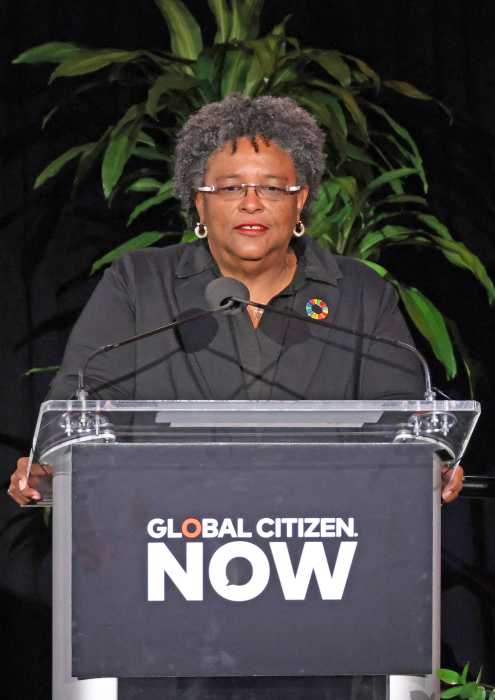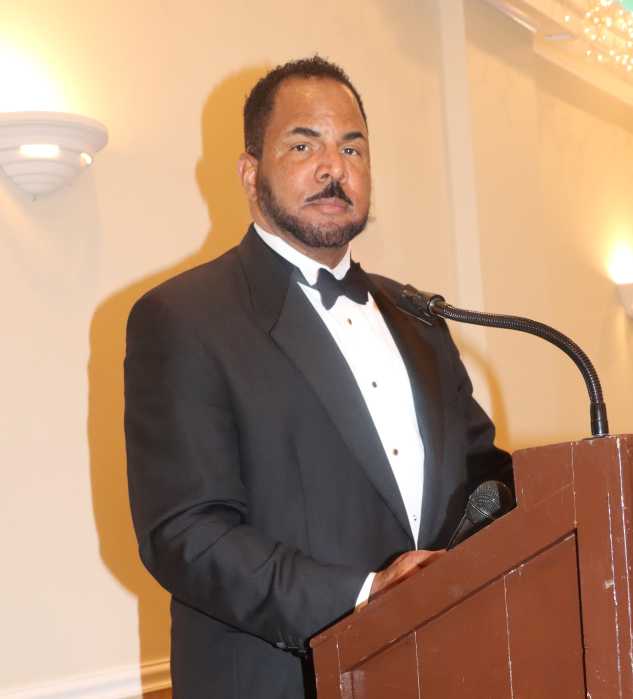Having been whipped by the tail of Tropical Strom Kirk that caused much flooding and related damage to houses last week, Barbados is taking no chances and will shortly begin a number of disaster preparation exercises for residents and emergency workers.
The storm passed more than 50 miles north of Barbados last Thursday but its outer bands carrying heavy rains and some wind unloaded on the island creating rivers of roads as water poured into households in some districts, causing pockets of electricity and water supply disruption.
To be sure this is not the first time that the island flooded from heavy storms in the hurricane season but this instance provided a reality check for the four-month Prime Minister Mia Mottley government and prompted it to move away from the inaction of the past administration.
“We are not waiting for next June, because these things are affecting too many people and in ways that are substantive. So early in the new year, we are going to have some simulation exercises to make sure that everybody knows [what to do] during disasters,” Mottley said during a tour of affected areas mere hours after flying in from the UN General Assembly where she had warned of the perils stemming from climate change faced by small island states.
This current government’s decision to take pre-emptive action contrasts with the recent past.
Just last year September and despite being almost 100 miles away and only at Category One strength, Hurricane Maria damaged a number of homes and caused the usual flooding that afflicts certain parishes in heavy rainfall, eroded at least one beach, and threw waves on some roadways including the downtown Bridgetown Wharf Road.
But no meaningful action was taken in the ensuing year to prepare residents for such disasters — that could be worse if the island had a direct hit — or to improve the response time of emergency and essential services.
“Our country’s infrastructure is in a woeful state and we need to be able to deal with that,” observed Mottley.
“A lot of roads have been built in Barbados without any kind of drainage.”
The passage of the storm had caused Mottley to cut short her time at the UN and abandon a planned business trip to Europe.
“Events have happened in the last 24 hours in the world in which we live that cannot be ignored,” she had said in her UN address Friday.
At that time she told the world body that the planet was confronted with issues of climate change that bear urgency for the Caribbean islands, and other island states elsewhere.
“For us, it is about saving lives. For others, it is about saving profits,” Mottley said in pointing to the slowness of world decision-makers to act on the imminent disaster.
“We have reached the stage where we ask the global community to recognise what is at stake is simply not an academic debate; it is simply not the profits of multinational corporations. But the evidence is clear and decisive that it is the lives and it is the living of our people.”
She said that the people whose lives and living are most at risk are spread across the globe, “whether in my own country, the passage of a tropical storm that we thought had passed us, only to have floods hit too many of our communities overnight or; for it to hit our sister country St. Lucia; whether an earthquake off the shore of Martinique and Guadeloupe and Dominica this morning, not affecting land but destabilizing; whether an earthquake off Indonesia earlier today and a tsunami or; whether a typhoon that is about to deal with the people in Japan, these events are of concern because the world in which we live is a very different world.”


























